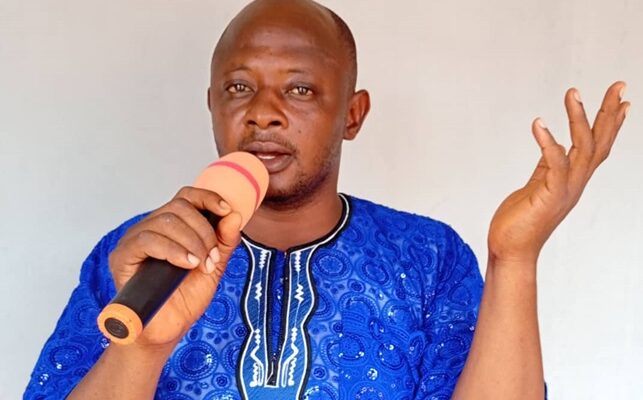In a generation smitten by superficiality and the cult of self-expression, the eternal pillars of salvation, restitution, and sanctification are seen not as paths to transformation, but as archaic burdens. Yet, these three are the architecture of divine regeneration—heaven’s curriculum for fashioning the broken soul into a vessel of light. In the words of Bro. Gbile Akanni, “God is not looking for those who are merely touched; He is searching for those who are transformed.” This transformation does not come by inspiration alone but through a consistent yielding to the demands of divine order.
Salvation remains the spiritual nucleus of the Christian experience. It is not a denominational badge nor a cultural inheritance; it is the crucifixion of the old man and the resurrection of a new nature. As Pastor W.F. Kumuyi aptly noted, “Salvation is not reformation, it is regeneration. You don’t turn a leaf, you receive a new life.” Sadly, the modern gospel often offers therapy, not transformation—encouragement, not rebirth. But a salvation that does not sever a man from sin is cosmetic, not Christic. It cannot endure the pressures of life or the trials of the Spirit. It produces professors, not possessors.
Yet, salvation that stops at confession without the accompanying moral repair is a spiritual miscarriage. This brings us to the often-neglected virtue of restitution—the outward expression of inner repentance. Bro. Gbile Akanni warns, “A broken man is not the one that cries in the prayer room but the one that goes out to make things right.” True encounter with Christ creates a holy discomfort that drives one to right every historical wrong—lies confessed, debts repaid, grudges relinquished, and stolen things returned. It is not legalism; it is integrity in action. In a society where corruption is normalized, restitution is the revolutionary act of a regenerated conscience.
The Igala people have a proverb: “A broken gourd may still hold rainwater, but only the cleansed one satisfies the god.” It mirrors the sacred truth that even a flawed man may function, but it is only the sanctified man that pleases God. This is where sanctification becomes non-negotiable. Not content with saving us from sin’s penalty, God desires to save us from sin’s power and presence. Elijah Omale, one of the prophetic voices among the Igala, declared: “Our Christianity must reflect heaven’s holiness; otherwise, we are deceiving ourselves. Power without purity is pollution.”
Sanctification is not sin management—it is sin mortification. It is not behaviour modification, but nature transformation. Pastor W.F. Kumuyi often reminds his audience: “Sanctification is not just keeping rules; it is the removal of the root.” This is the divine surgery that excavates the Adamic tendency and plants the seed of divine character. It is not the loudness of tongues, but the quietness of spirit. Not the flamboyance of dressing, but the hidden man of the heart. It is the fire that burns the wood, hay, and stubble of our human tendencies.
The tension of modern Christianity lies in its eagerness to celebrate salvation while resisting its demands. We cheer grace but mock discipline. We affirm forgiveness but trivialize repentance. But Bro. Gbile Akanni asserts again, “God will not anoint a man He cannot trust.” And how does trust come? Through the crucible of sanctification. Through days and nights of divine dealings. Through refusing the pleasures of sin for a season, and embracing the scorn of holiness for eternity.
The tragedy is that many churches today are raising believers without burden, Christians without crucifixion, and saints without sanctity. But until salvation leads to restitution, and restitution births sanctification, we remain actors in religious theatre, not pilgrims on the narrow way. The gospel without sanctification is like fire without heat—it may glow but cannot warm. Pastor W.F. Kumuyi once rebuked, “Heaven is not for church-goers, it is for overcomers.”
As we confront the moral collapse in society, it is imperative that we return to these ancient foundations. Politicians may promise reform, but only redemption reforms the heart. Activists may agitate for justice, but only sanctification guarantees righteousness. The Igala elders understood this balance. One of their old maxims translates: “A man who has not cleaned his own shrine does not light the torch for others.” In clearer terms—no one can lead others to moral clarity unless he has first journeyed through the fires of personal purification.
This call is not to legalism but to liberation—freedom from the tyranny of self, ego, and sin. Bro. Gbile Akanni warns: “If you are not ready to lose your life, you cannot find the life God is offering.” The cross, not the crowd, must be our compass. The blood, not popularity, must be our covering. The altar, not the algorithm, must define our priorities. And as the Church returns to the hard demands of righteousness, the world will once again see Christ—not as a doctrine, but as a living Person in His people.
Until then, let every man examine himself. Let pulpits burn again with the flames of repentance. Let young men carry the yoke of consecration. Let elders become living epistles. Let the Igala land and all of Africa rediscover the ancient path—salvation, restitution, sanctification. For there lies not only revival but the redemption of our collective destiny.
– Inah Boniface Ocholi writes from Ayah – Igalamela/Odolu LGA, Kogi state.
08152094428 (SMS Only)




